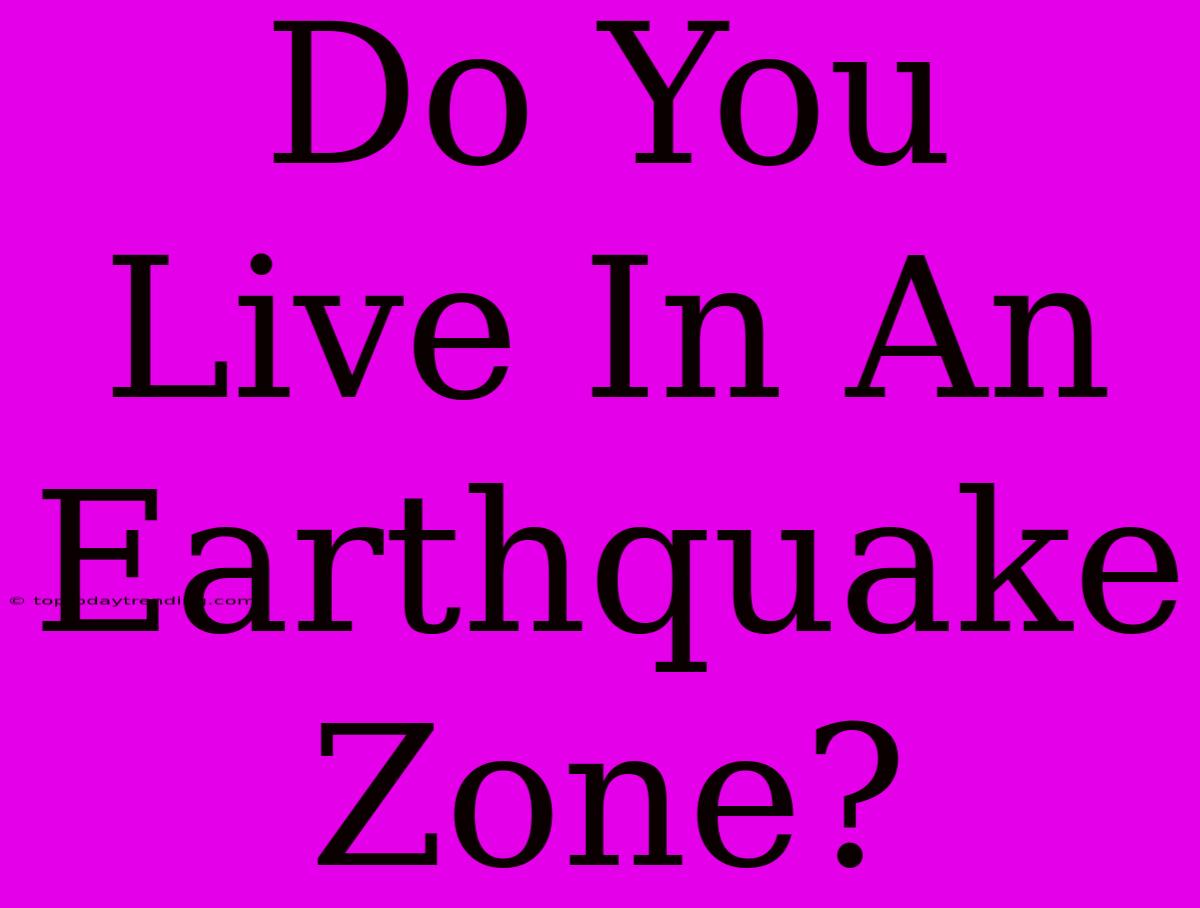Do You Live in an Earthquake Zone? Knowing Your Risk is Crucial
Earthquakes, with their unpredictable nature and devastating potential, are a natural phenomenon that affects millions around the globe. The constant movement of tectonic plates beneath the Earth's surface leads to the release of energy, causing tremors that can be felt across entire continents. While some regions are more prone to seismic activity than others, the question remains – do you live in an earthquake zone?
Knowing your risk is crucial for personal safety and preparedness. Here's a comprehensive guide to understand the basics of earthquake zones, how to identify if you're in one, and most importantly, what steps you can take to prepare yourself and your family.
Understanding Earthquake Zones
The Earth's tectonic plates constantly move, interact, and shift, causing stress to build up along their edges. This stress can be released suddenly, causing earthquakes. Regions where these plates meet are known as fault lines, which are the primary areas of seismic activity.
Here are some key points to remember about earthquake zones:
- Fault lines are not evenly distributed: They are concentrated in specific areas, creating earthquake zones with varying degrees of risk.
- Risk varies based on the type of fault line: Some fault lines are prone to slow, gradual movements, while others cause more frequent and intense tremors.
- Magnitude and frequency of earthquakes are important: While some areas experience frequent, low-magnitude earthquakes, others may have fewer but more powerful events.
Identifying If You Live in an Earthquake Zone
The good news is that numerous resources are available to help you determine your risk.
- Check online maps: Organizations like the United States Geological Survey (USGS) and the International Seismological Centre (ISC) provide detailed maps that show earthquake zones across the globe.
- Consult local authorities: Your local government or emergency management agency can provide information on earthquake risk in your area.
- Research historical data: Look up past seismic activity in your region to gain an understanding of earthquake frequency and intensity.
Preparing for Earthquakes: A Checklist for Safety
Living in an earthquake zone requires proactive steps to ensure safety and minimize damage. Here's a checklist for preparedness:
1. Secure Your Home:
- Earthquake-proof your home: Install seismic bracing, secure heavy objects, and learn how to reinforce weak spots in your structure.
- Secure furniture and appliances: Use straps, brackets, or anchors to keep furniture and appliances from moving during an earthquake.
- Store hazardous materials securely: Ensure flammable liquids and chemicals are stored in secure containers and in designated areas.
2. Create an Emergency Plan:
- Develop a family communication plan: Establish a designated meeting point and ensure everyone knows how to reach each other in case of an emergency.
- Prepare an emergency kit: Include essential supplies like water, food, first-aid supplies, flashlights, batteries, and a radio.
- Know the evacuation routes: Familiarize yourself with safe exit paths from your home and workplace.
3. Stay Informed and Be Prepared:
- Learn about earthquake preparedness: Attend workshops or online courses to understand how to act during an earthquake.
- Subscribe to emergency alerts: Sign up for local and national alert systems that provide real-time updates on earthquake activity.
- Practice earthquake drills: Regularly practice earthquake drills with your family to ensure everyone knows what to do during an event.
Living Safely in Earthquake Zones
Understanding earthquake zones and taking proactive steps to prepare can significantly reduce the risk of injury and property damage. By staying informed, securing your home, and practicing emergency preparedness, you can increase your chances of surviving an earthquake and minimizing the impact it may have on your life.
Remember, being prepared is not just about protecting yourself; it's about ensuring the safety of your loved ones and your community as well. Stay informed, be proactive, and stay safe.

